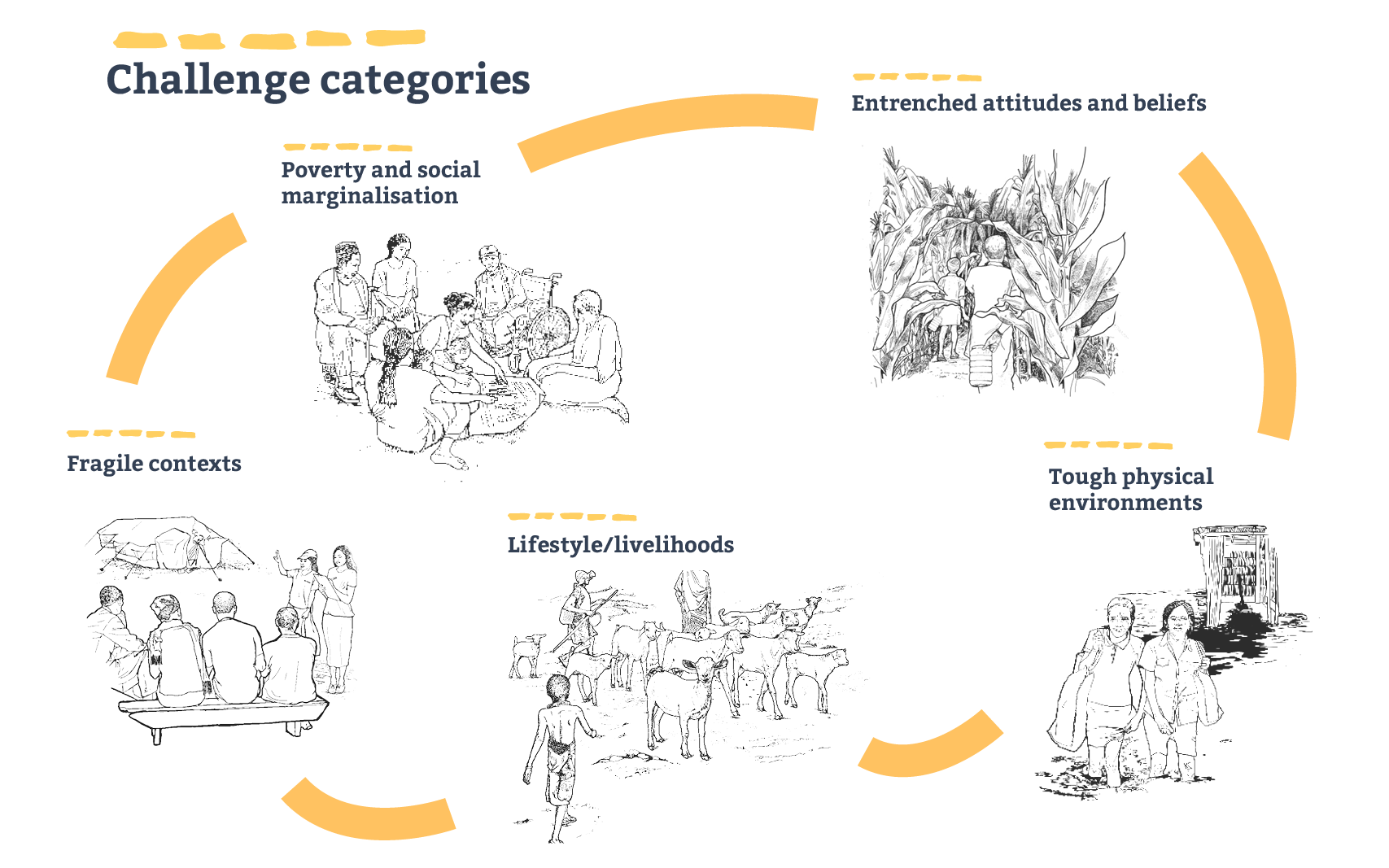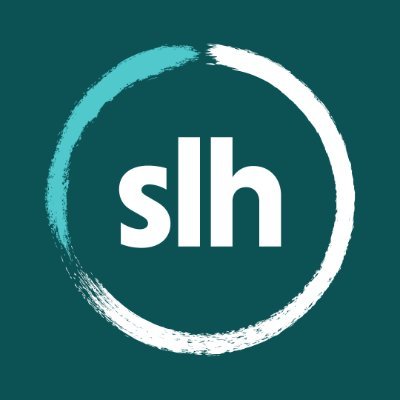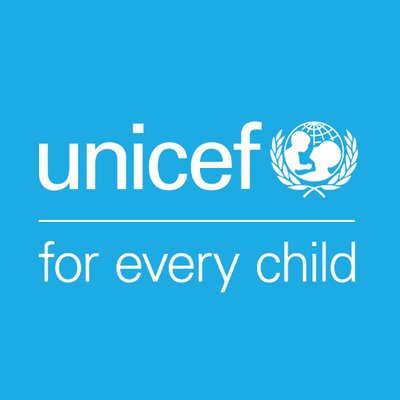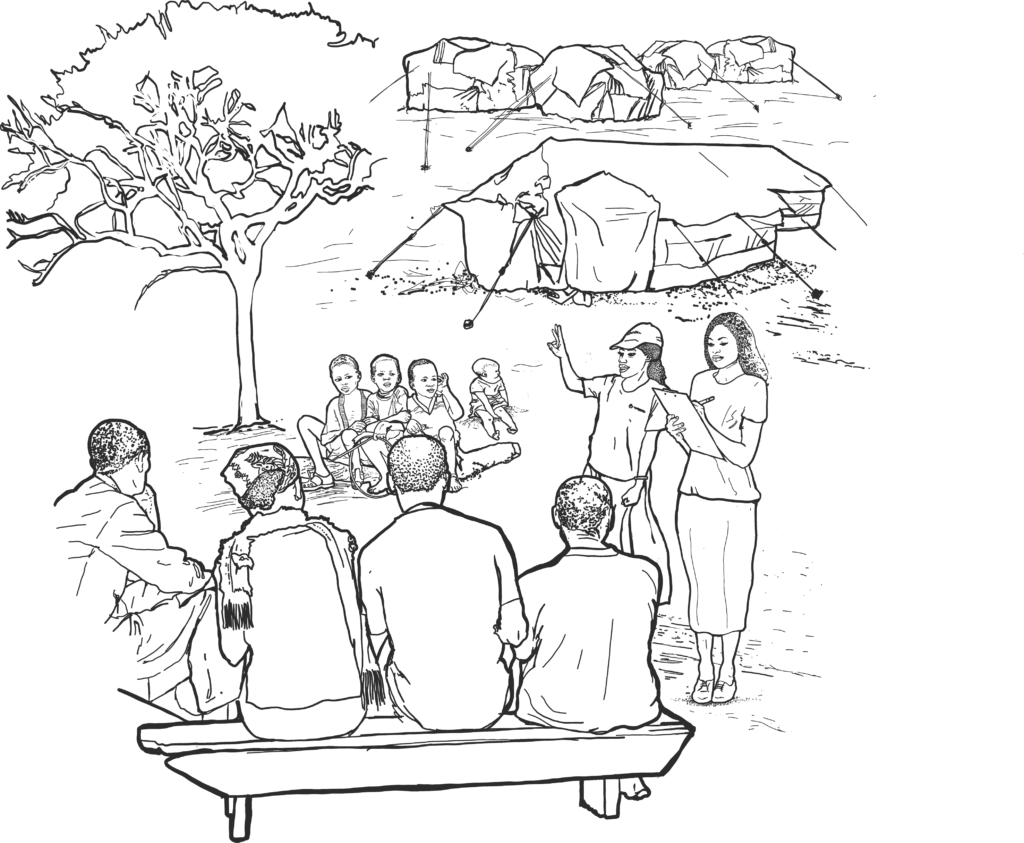The Sanitation Learning Hub, WaterAid and UNICEF are collaborating on an evidence-based practical guidance document which aims to support progress on area-wide sanitation and coverage in particularly challenging contexts.
Challenging contexts include:
- Poverty and marginalisation: individuals, households and communities who are deliberately excluded and those whose access to resources make an improved toilet impossible – this could be due to land tenure, homelessness or access to finance, building materials or financial services
- Entrenched attitudes and social beliefs: individuals, households and communities’ attitudes and beliefs make them reluctant to construct or use toilet facilities
- Tough physical environments: including challenging ground conditions (geology, soils, hydrology, topography), a lack of natural materials for construction, exposure to natural hazards and remoteness making communities’ access to markets and materials needed difficult. Though having a detrimental impact on all challenge categories, rapid climate change is increasing exposure to natural hazards and water scarcity.
- Lifestyles/Livelihoods: this could be due to a particular groups temporary, transient or informal status – such as temporary and seasonal migrants, fishing communities and nomadic or semi-nomadic communities.
- Fragile contexts: falling within both the humanitarian and development spheres these contexts can be challenging due to a lack of access to programme sites and the presence and effectiveness of governments, market actors and NGOs. This category also includes the challenges communities in these contexts face to build and use toilets such as social cohesion and destruction of accesses due to conflicts. Finally, it also includes displaced persons residing in camps and host communities.

(!) These categories are rarely experienced in isolation – the guidance developed aims to recognise the complexities of societies and lives people lead with multiple challenges overlapping, compounding problems and reinforcing the status quo.
This work builds on previous work undertaken by the Sanitation Learning Hub, WaterAid and UNICEF (see the Learning Paper by Tillet and Jones, 2021) which found limited practical resources on ways to implement in these contexts at the speed and scale required to ensure safely managed sanitation for all by 2030.
The proposed output:
Recognising the complexities of disadvantages, the challenges people face and to ensure we root any advice provided in the realities and experiences of peoples lives, the guide will be people focused. This means not a A-Z guide on how to operate in context A or context B, instead it will seek to provide evidence-based direction on:
- How to categorise and profile difficult contexts
- Tips and tricks on conducting formative research, designing implementation strategies and choosing and evolving approaches that suit different contexts
- Guidance on monitoring and evaluation – including what additional components are needed for challenging contexts
- Advice on advocacy and influencing policy change to provide duty bearers with the commitments and skills needed to make progress towards nation-wide sanitation coverage
Taking this into account the guide will focus on guiding principles and tips for planning, implementing and monitoring, evaluating and learning. It will include practical recommendations and draw on a diverse range of cases-studies (across geographical locations and challenging contexts). These case studies will include examples of how to engage with marginalised groups and rights-holders organisations as well as governments at the local and national level.
Its overarching aim will be to providing solutions and ways forward to contribute to nation-wide sanitation coverage. It will also provide advice on how to update and align existing government policies that may be well articulated at the national level but currently not informing programming at more local levels or failing to address specific challenging contexts.
Finally, as the defining issue of our time, climate change will be interweaved throughout with a focus on building resilience to stresses and shocks at the local level.
Anticipated steps:
To develop the guide we envision undertaking the following steps:
- Working closely with national level actors, including local research institutions
- Identifying case-studies at national and sub-national level
- Convening in-country meetings, workshops and events
- Establishing a technical and user group to support the development
How to get involved:
Stakeholders from across the sector can engage with this process in a number of different ways. Some ideas are provided below:
- Join us on the core guidance development team
- Share and suggest ideas for case studies
- Join the technical and user reference group
- Attend or co-host a country workshop
- Work with us to document and develop case studies of your work
We anticipate these activities taking place over the next six months (till September 2022). For those interested in getting involved please reach out to us at [email protected]









